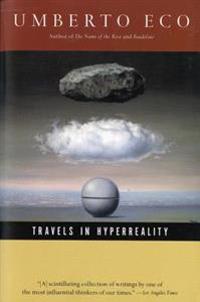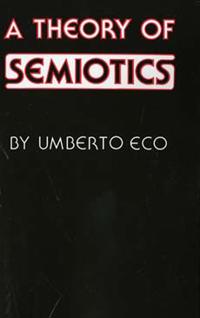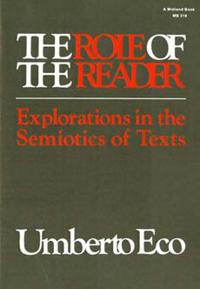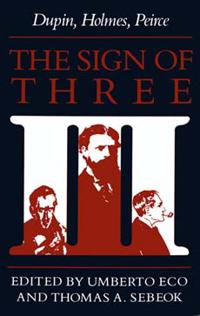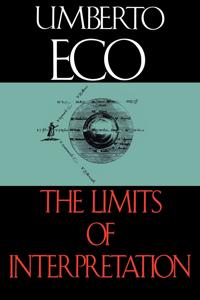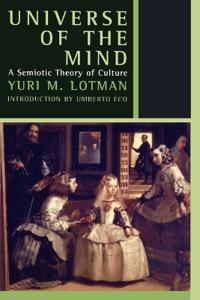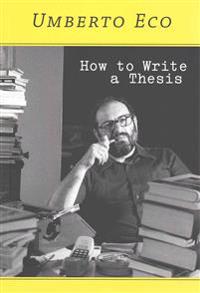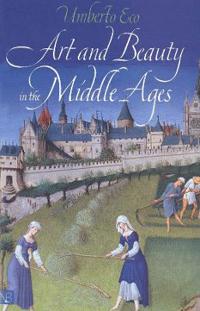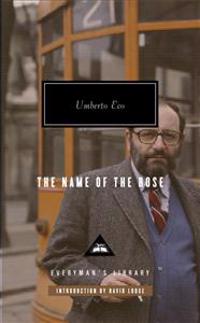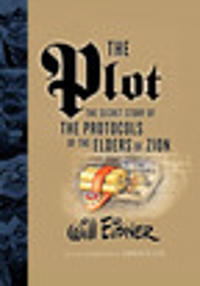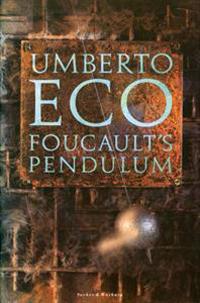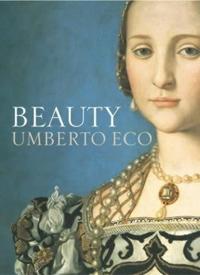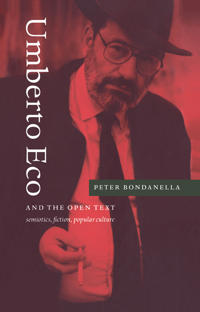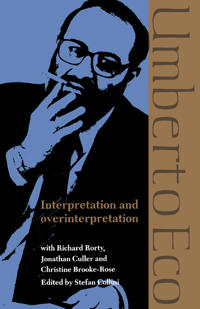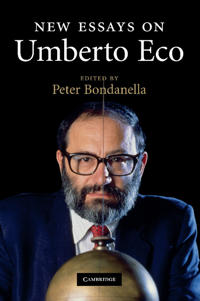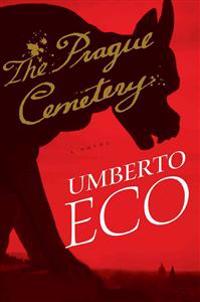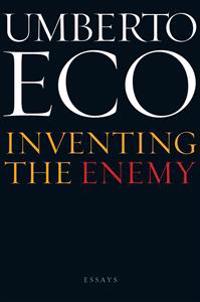Travels in HyperReality (Häftad)
avUmberto Eco, John Radziewicz
ISBN: 9780156913218 - UTGIVEN: 199005Eco displays in these essays the same wit, learning, and lively intelligence that delighted readers of The Name of the Rose and Foucault's Pendulum. His range is wide, and his insights are acute, frequently ironic, and often downright funny. Translated by William Weaver. A Helen and Kurt Wolff Book [...]
Serendipities: Language and Lunacy (Inbunden)
avUmberto Eco
ISBN: 9780231111348 - UTGIVEN: 2015-06-24A Theory of Semiotics (Häftad)
avUmberto Eco
ISBN: 9780253202178 - UTGIVEN: 197606..". the greatest contribution to [semiotics] since the pioneering work of C. S. Peirce and Charles Morris." --Journal of Aesthetics and Art Criticism..". draws on philosophy, linguistics, sociology, anthropology and aesthetics and refers to a wide range of scholarship... raises many fascinating que[...]
The Role of the Reader (Häftad)
avUmberto Eco
ISBN: 9780253203182 - UTGIVEN: 197906In this collection of nine essays, Umberto Eco sets forth a dialectic between 'open' and 'closed' texts, between a work of art that actively involves the 'addressee' in its production and one that holds the 'addressee' at bay and seeks to evoke a limited and predetermined response. He investigates t[...]
The Sign of Three (Häftad)
avUmberto Eco, Thomas A. Sebeok
ISBN: 9780253204875 - UTGIVEN: 1984-06'...fascinating throughout...the book is recreative in the highest sense' - Arthur C. Danto, "The New Republic". 'A gem for Holmes fans and armchair detectives with a penchant for logical reflection, and Peirce scholars' - "Library Journal".[...]
The Limits of Interpretation (Häftad)
avUmberto Eco
ISBN: 9780253208699 - UTGIVEN: 199403Umberto Eco focuses here on what he once called 'the cancer of uncontrolled interpretation' - that is, the belief that many interpreters have gone too far in their domination of texts, thereby destroying meaning and the basis for communication. This important book by a major international intellectu[...]
Universe of the Mind: A Semiotic Theory of Culture (Häftad)
avYuri Mikhailovich Lotman, Umberto Eco
ISBN: 9780253214058 - UTGIVEN: 200103Universe of the Mind
A Semiotic Theory of Culture
Yuri M. Lotman
Introduction by Umberto Eco
Translated by Ann ShukmanA major book by one of the initiators of cultural studies. "Universe of the Mind is an ambitious, complex, and wide-ranging book that semioticians, textual critics, and[...]How to Write a Thesis (Häftad)
avUmberto Eco
ISBN: 9780262527132 - UTGIVEN: 2015-04By the time Umberto Eco published his best-selling novel The Name of the Rose, he was one of Italy's most celebrated intellectuals, a distinguished academic and the author of influential works on semiotics. Some years before that, in 1977, Eco published a little book for his students, How to Write a[...]
Art and Beauty in the Middle Ages (Storpocket)
avUmberto Eco
ISBN: 9780300093049 - UTGIVEN: 200203In this volume, the Italian novelist and playwright Umberto Eco aims to present a learned summary of mediaeval aesthetic ideas. Juxtaposing theology and science, poetry and mysticism, Eco explores the relationship that existed between the aesthetic theories and the artistic experience and practice o[...]
The Name of the Rose (Inbunden)
avUmberto Eco, David Lodge
ISBN: 9780307264893 - UTGIVEN: 2006-09In 1327, finding his sensitive mission at an Italian abbey further complicated by seven bizarre deaths, Brother William of Baskerville turns detective, penetrating the cunning labyrinth of the abbey and deciphering coded manuscripts for clues.[...]
The Count of Monte Cristo (Inbunden)
avAlexandre Dumas, Umberto Eco
ISBN: 9780307271129 - UTGIVEN: 2009-06This beloved novel tells the story of Edmond Dantes, wrongfully imprisoned for life in the supposedly impregnable sea fortress, the Chateau d'If. After a daring escape, and after unearthing a hidden treasure revealed to him by a fellow prisoner, he devotes the rest of his life to tracking down and p[...]
El Cementerio de Praga = The Cemetery of Praga (Häftad)
avUmberto Eco
ISBN: 9780307745118 - UTGIVEN: 2011-05The Plot (Inbunden)
avWill Eisner, Umberto Eco, Will Eisner
ISBN: 9780393060454 - UTGIVEN: 200505In a work more disturbing than fiction, "the father of graphic novels" (The New York Times) Will Eisner examines the outrageous fabrication of The Protocols of the Elders of Zion, which purports to be the actual blueprint by Jewish leaders to take over the world. Hatched as an anti-Semitic plot by t[...]
The Plot (Pocket)
avWill Eisner, Umberto Eco, Will Eisner
ISBN: 9780393328608 - UTGIVEN: 200605In a work more disturbing than fiction, "the father of graphic novels" ("The New York Times") Will Eisner examines the outrageous fabrication of The Protocols of the Elders of Zion, which purports to be the actual blueprint by Jewish leaders to take over the world. Hatched as an anti-Semitic plot by[...]
Foucault's Pendulum (Inbunden)
avUmberto Eco
ISBN: 9780436140969 - UTGIVEN: 198910This novel by the author of "The Name of the Rose" follows that book's format of a complex intellectual thriller. The plot ranges back and forth through the centuries, full of arcane knowledge, secret societies, love, death, passion and perversion.[...]
On Beauty (Inbunden)
avUmberto Eco
ISBN: 9780436205170 - UTGIVEN: 200410'On Beauty' is neither a history of art, nor a history of aesthetics but Umberto Eco draws on the histories of both these disciplines to define the ideas of beauty that have informed sensibilities from the classical world to modern times.[...]
Candida Hofer (Inbunden)
avUmberto Eco
ISBN: 9780500543146 - UTGIVEN: 200510Nobody photographs the splendid and intimate cathedrals of knowledge as beautifully as Candida Hofer. This superbly produced volume contains Hofer's famously ascetic images of the Escorial in Spain, the Whitney Museum and the Pierpont Morgan Library in New York, Villa Medici in Rome and the Hamburg [...]
Umberto Eco and the Open Text (Häftad)
avPeter Bondanella
ISBN: 9780521020879 - UTGIVEN: 2005-10Umberto Eco is Italy's most famous living intellectual, known among academics for his literary and cultural theories, and to an enormous international audience through his novels, The Name of the Rose, Foucault's Pendulum and The Island of the Day Before. Umberto Eco and the Open Text is the first c[...]
Interpretation and Overinterpretation (Häftad)
avUmberto Eco
ISBN: 9780521425544 - UTGIVEN: 199203Umberto Eco, international bestselling novelist and leading literary theorist, here brings together these two roles in a provocative discussion of the vexed question of literary interpretation. The limits of interpretation - what a text can actually be said to mean - are of double interest to a semi[...]
The New Essays on Umberto ECO (häftad)
ISBN: 9780521617574 - UTGIVEN: 2013-01There is a wealth of critical commentary on Umberto Eco in scholarly books and articles; this collection provides thought-provoking insights into topics that have attracted a great deal of attention in the past without repeating many of the arguments found in earlier publications on Eco. Representin[...]
The Name of the Rose (Häftad)
avUmberto Eco
ISBN: 9780544176560 - UTGIVEN: 2014-04Umberto Eco's first novel, an international sensation and winner of the Premio Strega and the Prix Medicis etranger awards
The year is 1327. Franciscans in a wealthy Italian abbey are suspected of heresy, and Brother William of Baskerville arrives to investigate. When his delicate mission is su[...]Five Moral Pieces (E-bok)
avUmberto Eco
ISBN: 9780547564050Embracing the web of multiculturalism that has become a fact of contemporary life from New York to New Delhi, Eco argues that we are more connected to people of other traditions and customs than ever before, making tolerance the ultimate value in today's world. What good does war do in a world where[...]
The Prague Cemetery (Inbunden)
avUmberto Eco
ISBN: 9780547577531 - UTGIVEN: 201111Nineteenth-century Europe--from Turin to Prague to Paris--abounds with the ghastly and the mysterious. Jesuits plot against Freemasons. Italian republicans strangle priests with their own intestines. French criminals plan bombings by day and celebrate Black Masses at night. Every nation has its own [...]
Inventing the Enemy: And Other Occasional Writings (Inbunden)
avUmberto Eco
ISBN: 9780547640976 - UTGIVEN: 201209"Inventing the Enemy" covers a wide range of topics on which Umberto Eco has written and lectured for the past ten years, from a disquisition on the theme that runs through his most recent novel, "The Prague Cemetery"--every country needs an enemy, and if it doesn't have one, must invent it--to a di[...]

